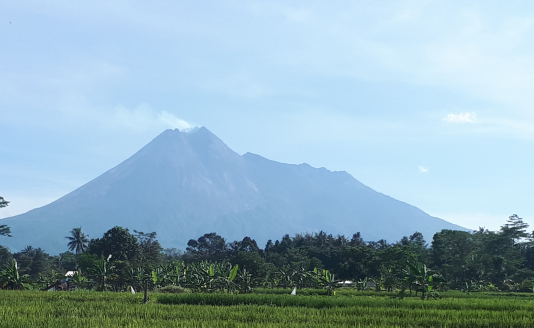Mount Merapi in Central Java is one of the most volatile and dangerous volcanoes in Indonesia, and in 2010, a significant eruption resulted in 277 fatalities. Following the disaster, research highlighted weaknesses in community evacuation practice, with many communities ignoring official warnings. Lessons have been learned from this and now there is much better communication and trust between government agencies and local communities. However, it is hard to predict how people will behave in the event of disaster.

Academic partners in Universitas Gadjah Mada in Indonesia, Dr Hilya Mudrika Arini, Dr Tri Mulyani Sunarharum and Dr Budi Hartono, have substantial experience in hazard management planning, and they worked with Heriot-Watt University researcher Dr Agnessa Spanellis to explore whether game based learning could impact on community responses to disasters and increase their resilience. Indonesian researchers spent time with the community in Argomulyo village in Sleman Regency of Yogyakarta, near Mount Merapi interviewing the local community leader and residents to build an understanding of their behaviours and attitudes to the volcano It became clear that there was a critical need to develop a sense of agency within communities, and a need to train volunteers for encouraging evacuation and supporting vulnerable groups.
The research teams worked closely together to develop a game app, based in local languages and with imagery typical to the area. This challenges players on how they can respond to a range of typical scenarios, to find ways to save their communities. See more about the game here.

The game has now been developed and is available for download in English and Bahasa. Workshops will be held with communities, government agencies and emergency services, promoting the use of the game and how it can support more effective disaster preparedness. The game could be used more widely within Indonesia and for complementary training for emergency services. The researchers in Indonesia will continue to evaluate the impact of the game on community behaviours in the longer term.
Indonesia is one of the countries that is most vulnerable to natural hazards, with volcanic eruptions, earthquakes and tsunamis occurring frequently. Natural hazard management is a key component of Indonesia’s National Strategy for Resilience. This project, along with complementary work on tsunami risk detection, show how the Global Challenges Research Fund is helping address the real challenges facing developing countries.
